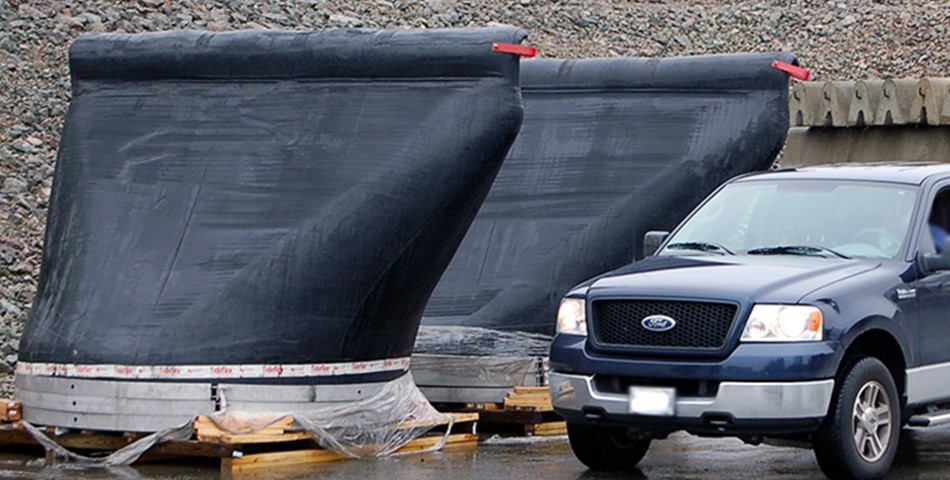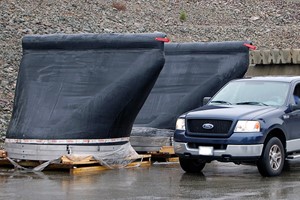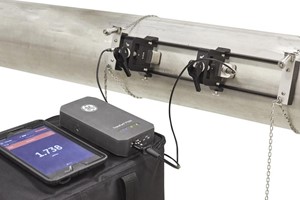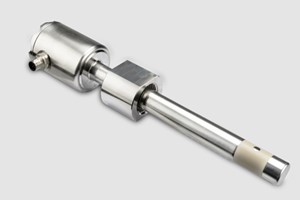Tideflex® Duckbill Check Valves are a strong solution to ensure long-term and maintenance-free backflow prevention in a tough seaside environment that is difficult to access and is subject to tides, sand, and silt.
The Government of the Island of Jersey, United Kingdom, was having issues with a surface water outfall located on Gloucester Street, in the St. Helier area of the island. The high-maintenance outfall frequently needed to have sand and silt from the Atlantic Ocean removed from in front of a flap valve installed at the end of the outfall pipe. The sediment was either jamming the flap valve open or closed. When the valve was jammed closed, the flap was stuck shut in the sand and it caused the drainage system to back up. When it was jammed open by the sand, the flap could not close, and seawater infiltrated the pipeline and surcharged the network.
Clearing the sand and silt required a track machine to enter the beach via a nearby slip way. To alleviate the water that built up in the upstream system, a channel had to be dug adjacent to a popular tidal access road. Due to the sand and silt being removed, it was classed as dredging, which needed license permitting when removing large quantities for disposal from the beach, resulting in extremely high maintenance costs.
The Government of the Island of Jersey tried various methods to fix the flap valve. Steel flaps had proven troublesome: they corroded in seawater, jammed open with debris, jammed shut with high levels of sand, and the high cracking pressure associated with the steel flaps in submerged conditions resulted in water backing upstream.
Rubber flaps were also tried. While they had a lower cracking pressure, they were liable to invert with backpressure, so a series of vertical support bars were added behind the flap to prevent inverting. However, material continued to jam open the rubber flap.
Due to the location the outfall, the pipeline needed a valve that could prevent tidal backflow from entering the drainage system. Sand and silt causing potential blockages were a serious challenge. The Government of Jersey approached MeasurIt, a Red Valve and Tideflex® Representative in the United Kingdom and Ireland, to develop a solution.
MeasurIt met with the Government of Jersey and visited the Gloucester Street Outfall. After careful consideration, they proposed a solution to overcome the issues. Following the design proposal, a 1600mm Tideflex Series 35-1 Duckbill Check Valve was installed on the outfall because of its ability to self-clean while still offering backflow prevention and minimal headloss.
The Tideflex Series 35-1 Duckbill Check Valve is a strong solution to ensure long-term and maintenance-free backflow prevention in a tough seaside environment. The existing flap valve was removed and the Tideflex Check Valve, with a flange and flat bottom, was bolted directly onto the existing outfall structure.
Tideflex Duckbill Check Valves can operate well in areas prone to sand and silt build up. Their passive performance allows the valve to drain by gravity and they self-clear with just the water flowing through them. Because Tideflex Duckbill Check Valves operate on differential pressure, they discharge flow even when submerged, with very low headloss. This was especially critical for this installation because the outfall was often under water.
The Tideflex Series 35-1 Duckbill Check Valve continues to provide a trouble-free solution to the Island of Jersey. Due to the success of the original Series 35, more have been installed on other areas of the island as well.
Edited by Yehya Aoun











